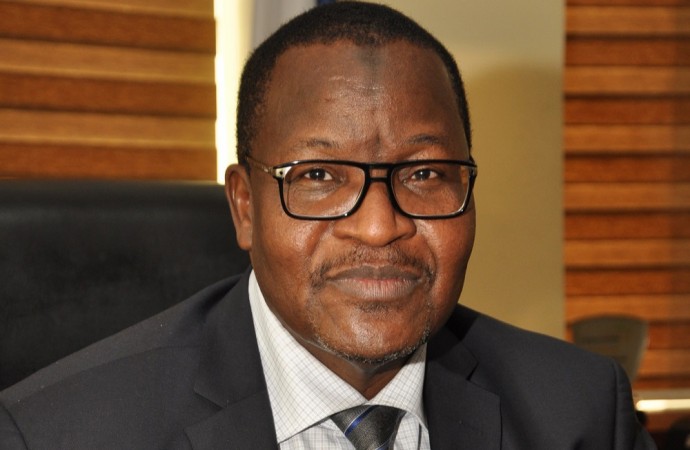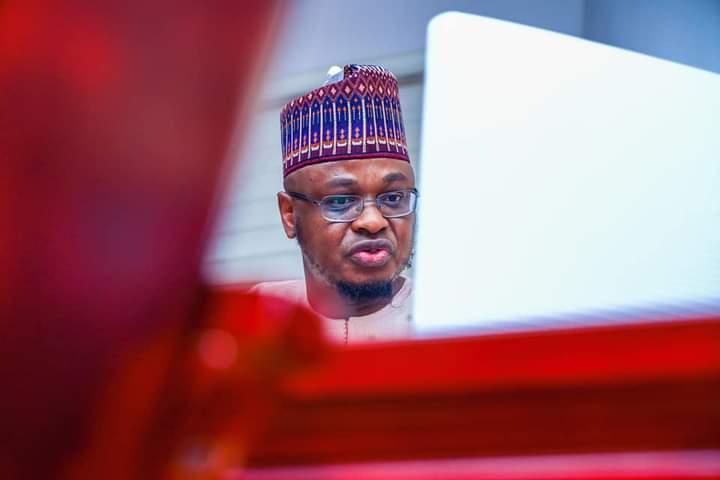It would have been some whiff of good news last week for the telecommunications industry if evidence on ground did not advertise the contrary, overwhelmingly. It was the turn of the Minister of Communications and Digital Economy, Dr Isa Pantami, to make his presentation at the 19th edition of the President Muhammadu Buhari’s Scorecard from 2015 to 2023 in Abuja. he seized the opportunity with both hands and spoke on sundry issues, some of them very contentious, to the goading approval of his host, the Minister of Information and Culture, Alhaji Lai Mohammed.
Quite a lot of information came into the open from the excitable atmosphere of Pantami but Vanguard pinned my attention with a particular shouting headline:
Scorecard: No plans to strip NCC of its powers – Pantami. From the Vanguard story, the minister got a welcoming opportunity to respond to some of the troubling issues in the industry and, with his love for the mocrophone, he didn’t disappoint at all.
Politics is about immodesty in Nigeria. Achievements are secondary. And where there is a little to celebrate, the politician goes to the rooftop to shout to the rest of the world, to draw attention to his base achievements.
Just by appearing at that Scorecard presentation, it wasn’t going to be easy for Pantami to whitewash the damage that has been done to the telecommunications industry within the period under review. The headline only seems to have captured his lack of understanding of public apprehension for the NITDA Bill which some of us have argued, took so much away from, or is committing acres of encroachment into the Nigerian Communications Act 2003.
After a failed attempt to give the Bill a subterranean shove to the status of an Act on December 23, last year, the Bill once again came up for Public Hearing at the National Assembly yesterday. There is perhaps a good reason the Bill is enjoying such urgent attention. It will be good for the lawmakers to furnish the public with comforting information in this respect.
It will be germane to attempt a historical recap so as to illuminate the minister’s understanding that the NITDA Amendment Bill is only the final straw designed to break the camel’s back, that is, if we find comfort in the agelong cliche. Before this time several coordinated attempts had been instituted to whittle down the independence and efficiency of the NCC. It is a perfect case of regulatory capture, the most blatant since the coming of democracy in 1999.
By way of putting a leg into the pool to test the waters, the minister moved his office from the secretariat in the heart of the Federal Capitial Territory (FCT) to a major property of the regulator at Jabi, from where he started to preside on who would take space in that building that had been designed for other purposes. A minister moving into the property of the regulator? It was unheard of. The Director General of the Diaspora Commission, Hon. Abike Dabiri-Elewa, who had been given a generous space by the NCC, was his first victim, ignominiously thrown out of the building.
Second was the deracination of the Univseral Service Provision Fund from the NCC with the position of the head of the Fund, a Secretary, upgraded to an Executive Secretary and moved out of the NCC building to work directly with the minister at the Jabi office. Check Section 118 of the Act – The USP Secretariat shall reside in the Commission; and is funded in the main by a portion of the annual levies paid to the Commission by the operators.
The USPF is instituted by Section 114 of the Communications Act 2003 and is designed to promote widespread availability and usage of network services and applications of network services throughout Nigeria by encouraging the installation of network facilities and the provision for network services and applications services to institutions and in unserved, underserved areas or for underserved groups within the community. (Quite a winding one from Section 112 of the Act).
With USPF pocketed, the minister moved to shape the Board of the NCC by humbling great mind, Senator Olabiyi Durojaiye out of office as Board chairman and replaced with his own yesterday man from NITDA. Senator Durojaiye would die not long after, perhaps out of disappointment. The conversation I had with him in his house in Lagos would remain between us forever, but I can tell you the adverse signs are all over the industry and they are not good.
Having shaped the board after his image and likeness, the minister stepped into the little details of the NCC, the day to day activities, industry meetings, and even staff promotion and press statements started to carry the imprimatur of the minister. The staff of the Commission who are old enough to have witnessed the glory days of the regulatory frontline agency are full of regrets.
The NCC has long been stripped of its powers and glory. Only the carcass is awaiting redemption that may come from the end of May, at the birth of a new administration.
Speaking on the NCC and NITDA and what seems to be a rat swallowing up an elephant, in the case of NITDA gaining overwhelming powers over the NCC, Pantami explained that the old Acts did not address the fourth industrial revolution and emerging technologies.
According to Pantami, “We are talking about Fouth Generation (4G) Technology and Fifth Generation (5G) Technology today as well as digital economy.
“The NITDA Act was specifically on Information and Communication Technology (ICT) sector, while the NCC Act dwells more on telecommunications.”
The minister is not totally true. He is speaking about an industry where he enjoys no exclusive knowledge. There is nothing about emerging technologies and things happening in the telecommunications industry today that some people still at the NCC did not not know about 15 years ago. One beautiful thing about that organisation is its capacity to train its staff to any length, as long as they were willing to learn new things. That foundation for staff training was put in place by Engr Ernest Ndukwe, former Executive Vice Chairman, and Board Chairman, Alhaji Ahmed Joda of blessed memory.
Plus the phantasmagoric revelation of 108 virtual Federal Executive Council (FEC) meetings receiving 66 cyber attacks that were foiled, Pantami also gave an update on the NIN/SIM verification policy which has been on since December 2020. From inception the policy was aimed at curbing insecurity which put a cloud of forlornness across the nation at the time and it still does now.
Speaking nearly five months later when he was embroiled in some kind of security mess, Pantami reiterated his determination. “On the issue of NIN-SIM verification to fight insecurity, there is no going back. Our priority as a government based on the provision of our constitution 1999 (as amended) Secrion 14(2)b is security, not just economy. For sure no going back at all,” he said.
From his presentation the National Identity Management Commission, (NIMC), was able to capture NIN of over 95 million citizens on its database within two years instead of the 39 million the agency had captured in 13 years.
Let me add the other leg of the story. The total number of MSISDNs (telephone numbers) that have submitted NINs are 162.9million while the number of MSISDNs with NINs verified stands at 99.97 million. The mobile subscription figures in Nigeria as at December last year, stand at over 220million. It will take years to ever complete the verification process.
Pantami tried to explain why the various security arms could not track criminals using the information details available in their SIM/NIN. Just like that.
A programme failed on its cardinal purpose, no apologies. Since the exercise began in 2020, there have been more killings in the country, more kidnappings and more unresolved criminalities. If he had given an update without talking about lives it would have been much better. The point is that people put their trust in the ability of their government to help secure their lives, and they have died.
One thing is very clear to me. That verification policy was introduced in a hurry, without proper feasibility studies, no impact analysis done and was therefore projected to be completed in one month! After several extension of dates, and over two years later, the SIM/NIN verification is not half done. A little acknowledgment would have been more respectful to the people who lost loved ones.
A source at the Commission told this writer that “we are no longer doing regulation, we are just pursuing shadows.” I totally agree with that source. Such feelings of dejection and despondency and a resurgence of nostalgia have been foisted by the meddlesomeness of the minister. That is how much ground the telecommunications industry has lost. That is how diminished and discombobulated the regulator has become.
Speaking in plain terms, the telecommunications industry needs help, real help.



